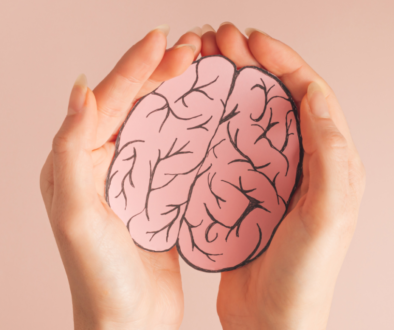AI and Wellness: Can Machines Help You Feel Better?
Artificial intelligence (AI) is no longer limited to sci-fi movies or Silicon Valley labs — it’s becoming a powerful player in the wellness world. From mood-tracking apps to personalized fitness coaching and mental health chatbots, AI is helping people take control of their health in new, data-driven ways.
But can machines really help us feel better? Or are we outsourcing something deeply human to algorithms? Let’s explore how AI is being used in wellness today, what it can (and can’t) do, and a few standout tools that are bringing these benefits into real life.
What Is AI in Wellness, Exactly?
AI in wellness refers to the use of machine learning, algorithms, and automation to analyze data and deliver personalized health and lifestyle support. It’s often paired with wearables, apps, or smart home devices — and it works by learning from your behaviors, preferences, and biological markers.
In practice, AI wellness tools may:
- Suggest workouts based on your recovery and stress levels
- Adjust your meditation routine based on focus data
- Flag sleep or stress trends over time
- Recommend food, supplements, or breathwork based on mood
How AI Is Helping People Feel Better
1. Personalized Sleep & Recovery Coaching
Wearables like the Oura Ring and Whoop Band use AI to analyze heart rate variability, sleep cycles, and body temperature. They offer daily readiness scores and recommendations for when to rest, push, or recover — helping users make smarter lifestyle choices.
AI helps remove the guesswork and brings data-backed accountability into sleep hygiene and energy management.
2. AI-Powered Meditation & Breathwork
Apps like Muse S and Core by Hyperice use sensors and AI to respond to your brain or heart activity in real time. You’ll know when your focus slips — and the app adapts to help you regain calm.
This feedback loop can help people develop deeper, more effective mindfulness practices by showing what works best for their nervous system.
3. Mental Health Support Through AI Chatbots
Tools like Wysa and Woebot use AI to deliver mental health support that’s private, nonjudgmental, and available 24/7. While they’re not a substitute for therapy, they can be great for:
- Talking through anxious moments
- Practicing cognitive behavioral therapy (CBT) techniques
- Building emotional awareness
For many, these tools lower the barrier to entry for mental health support — especially when stigma or cost are concerns.
4. Smarter Nutrition & Habit Tracking
AI-driven apps like Lumen and Noom use real-time biometrics or behavioral data to guide decisions around food, exercise, and daily routine. Some even provide predictive insights (e.g., when you’re likely to skip workouts or crave sugar) so you can stay ahead of your patterns.
These platforms transform self-awareness into action by tailoring recommendations to your biology and habits.
But Can AI Really Make You Feel Better?
The short answer: AI can support your wellness — but it can’t replace your intuition.
What it can do well:
- Detect patterns we often miss
- Offer structure and support with consistency
- Provide real-time feedback that helps build healthier habits
- Encourage personalization (instead of generic “one-size-fits-all” advice)
What it can’t do:
- Replace the value of human connection
- Know your emotions without your input
- Function perfectly — AI can make mistakes or feel impersonal
Use AI as a partner, not a guru. The best tools enhance your wellness journey, but they still need your self-awareness, honesty, and boundaries.
3 AI Wellness Tools Worth Exploring
Ready to test the tech? These tools combine personalization, smart design, and wellness impact — and they’re beginner-friendly.
1. Muse S (Gen 2) – Smart Meditation Headband
Tracks brain activity to guide meditation and sleep
- Uses EEG feedback to detect real-time calm vs distraction
- Offers guided meditations and sleep soundscapes that adjust as you relax
💰 ~$399 (affiliate programs available through ShareASale or direct via Muse)
2. Oura Ring Gen 3
💤 Tracks sleep, recovery, HRV, body temp, and readiness
- Offers personalized sleep and activity insights with AI-backed recommendations
- Lightweight, stylish, and easy to wear day and night
💰 ~$299 (affiliate options available via Amazon or Oura partner program)
3. Wysa Mental Health App
💬 AI chatbot for stress, anxiety, and CBT-based reflection
- Anonymous, 24/7 access to a supportive tool
- Used by over 5 million people for building emotional resilience
💰 Free version available; affiliate options via app stores or network platforms like Impact or FlexOffers
Final Thoughts: Wellness + AI = Empowered Choices
AI isn’t here to replace human wellness — it’s here to enhance it with insight, support, and personalization. Whether it’s tracking your sleep, calming your mind, or helping you check in emotionally, AI can be a powerful sidekick in your wellness routine.
The key is knowing when to lean in — and when to log off and just breathe.




